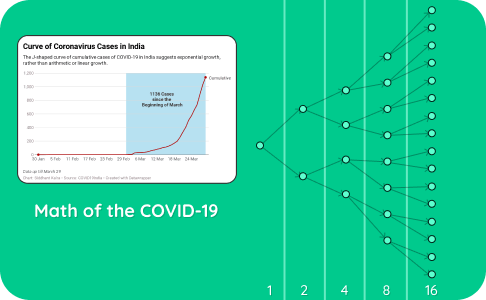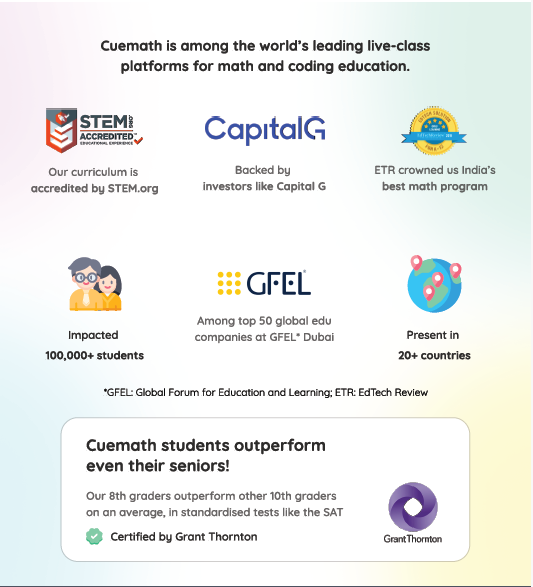What makes a better doctor? Experience, or GPA?
It’s often said that Indian doctors are among the best in the world. Why’s that? Are Indians brainier? Is India’s medical education system better? Well, it’s neither.
The real reason is that Indian doctors simply see so many more patients than their peers elsewhere, that a doctor in India is likely to have had a real-world experience of almost every imaginable variety in her domain, while for her peers, many situations will continue to be abstract knowledge for a long time.

Directly seeing something in front of you is far more powerful than indirectly imagining it in your head. When it comes to proficiency, real-world experience trumps abstract knowledge. Always.
This is also true for math. For most children, math is abstract - an abstract set of facts, formulas and theorems to be memorised. But learning a math concept in a real-world context is far easier than learning it as an abstract idea.
For example, most children find negative integers a weird concept. But use the real-world analogy of a building’s levels represented using positive integers (levels above ground), zero (ground level) and negative integers (levels below ground), and they get it, instantly.
Something like (-3) + 4 = 1 can now be easily understood as “Starting from -3 (the floor 3 levels below ground), add 4 (go 4 levels up), to get 1 (arrive at the first floor)”:

In my experience working with thousands of children, I’ve found that a child will always grasp a new concept far better, and far faster, when it’s introduced in a real-world context.
Also, the child’s ability to apply that concept will be far higher. That’s why we use real-world contexts extensively in our math and coding curriculum at Cuemath.
In late 2020, we did a series of online workshops with our students on the Math of the COVID-19. Children as young as first graders drew exponential trees and understood that if each person infects two people on an average, the virus spreads exponentially fast:

Children learnt that this exponential behaviour is why masks and social distancing are so important - they reduce the “spread factor”.
I realised that this workshop had succeeded when one of the attendees (a fourth grader) somewhat sternly mandated mask-wearing for her parents whenever they stepped out of their home. When her mother asked why, she said, “It’s just math mom”. :)

If this made sense, you might be interested in exploring Cuemath’s live Online Classes, where expert tutors teach math and coding using real-world contexts and activities.

visual curriculum

